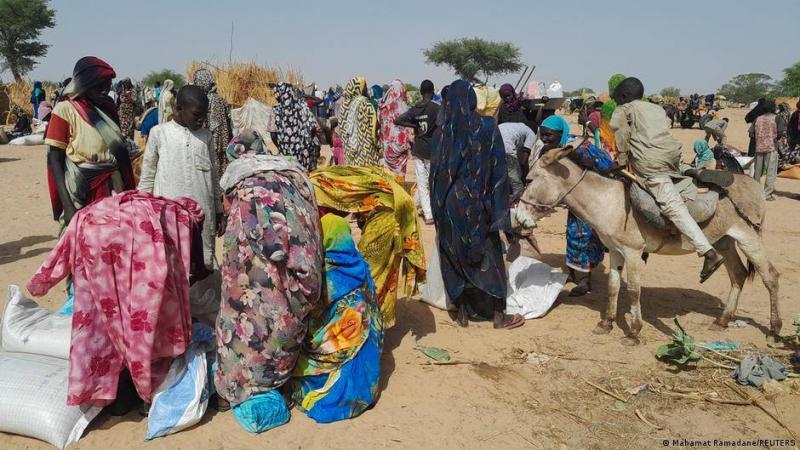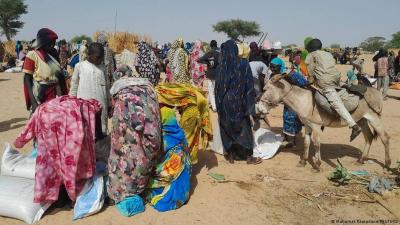Estimates from the International Organization for Migration indicate that the number of displaced individuals due to the conflict between the army and the Rapid Support Forces (RSF) in Sudan, which erupted nearly three months ago, has exceeded three million. The data states: "More than 2.4 million have been displaced internally, and over 730,000 have crossed borders into neighboring countries." The humanitarian situation in Sudan continues to deteriorate.
As per the latest figures:
- 2,414,625 internally displaced individuals
- 737,801 others fled to neighboring countries
Most of those who have fled did so from the capital, Khartoum, where the power struggle between the two sides began on April 15, or from Darfur, where ethnic violence has escalated. UN officials indicated that Sudan may descend into a civil war as regional and international mediation efforts fail. UN Special Envoy Volker Perthes stated in Belgium, "This war will not end soon," adding that numerous ceasefire agreements have been violated and "were primarily used by the factions for repositioning."
On Wednesday, residents reported hearing fighter jets and artillery bombardments in Omdurman and Bahri, which together with Khartoum form the capital region. Reports also emerged of fighting in recent days between the army and factions of the Sudan People's Liberation Movement (SPLM) in South Kordofan and Blue Nile states near the border with Ethiopia, resulting in additional waves of displacement from those areas.
The fighting has led to the destruction of vast areas in the capital and waves of attacks in Darfur. Civilians have been subjected to looting, power outages, food and water shortages, collapse of health services, and increasing incidents of sexual violence. The Sudanese government's unit for combating violence against women and children reported nine new cases of sexual assault in Khartoum yesterday, raising the total since mid-April to 51, adding that the actual number is likely much higher. The unit, perceived as neutral, stated that most victims accused the Rapid Support Forces of being behind the attacks. The RSF urged civilians to report violations and stated it would hold accountable those found involved in the violations.
Most of those who left Sudan migrated north to Egypt or west to Chad, with large numbers also crossing into South Sudan and Ethiopia. After sharing power with civilians following the ousting of Omar al-Bashir in a popular uprising four years ago, the army and RSF seized full power in a coup in 2021 before disputes arose between the two factions over plans to conduct democratic elections.
Attempts at mediation have made little progress. International efforts, including talks led by Saudi Arabia and the United States in Jeddah that were postponed last month, as well as an African-led meeting in Addis Ababa this week, have not yielded significant results. Neighboring countries of Sudan are set to hold a summit in Cairo tomorrow, Thursday.
On Wednesday, Britain announced it was imposing sanctions on six companies that it said are linked to the two forces fueling the ongoing conflict in Sudan by providing funding and weapons, expanding previous sanctions implemented by the United States.




